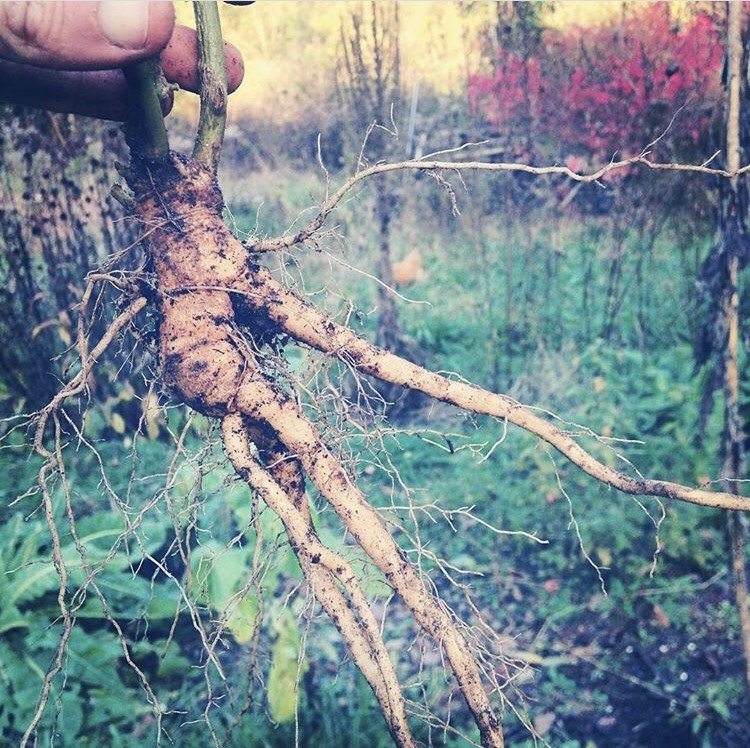Adaptogen Chai
Ashwagandha Root (Withania somnifera)
Winter is a time for nourishment and replenishment and the holidays, fun though the revelry can be, can also sometimes leave us feeling tired and depleted during a season when rest should be paramount. Enter adaptogens! A special class of herbs perfect for this time of year, adaptogens are known to work on what’s often referred to as the HPA Axis, or Hypothalamus-Pituitary-Adrenal Axis, which is a complex and integral communication system between our endocrine and nervous systems. Herbs in this category restore frazzled nervous systems, improve energy, encourage proper hormonal rhythms, improve quality of sleep, and increase our body's resilience to stress. In short, they're veritable life-savers for folks trying to balance the stresses of everyday modern life. Adaptogens are tonic herbs safe for daily use, and they have a cumulative effect in the body- the longer you take them the more strongly you’ll feel their effects. They lend themselves incredibly well to food as medicine practices, and one of my favorite ways to imbibe is in an adaptogen-filled chai.
There are many adaptogens out there, but this recipe features Tulsi and Ashwagandha, two of my favorites that tend to be well-tolerated by most folks (NOTE: a few adaptogens, namely Rhodiola and Ginseng can be too stimulating for some folks and can cause headaches and insomnia at night). Both Tulsi and Ashwagandha are easy to cultivate as annuals here in the Northeast and I grow both in my garden, ensuring a good supply for winter teas and cooking. Both these herbs are not only adaptogenic, but also nervines, meaning they can calm and relax anxiety as its happening-a wonderful added bonus! The classic chai spices in this recipe-called carminatives in herbalism- aid digestion, ease gas and bloating, improve nutrient assimilation, contain antimicrobial essential oils, are enlivening and warming, and add a wonderful flavor. I also love adding medicinal mushrooms to my chai. Medicinal mushrooms contain immune-boosting polysaccharides called beta-glucans that give the immune system a good work-out, so it’s primed and ready when the body encounters true pathogens like viruses and bacteria. They’re an important part of my herbal routine that I would never want to be without! Feel free to make your own additions and subtractions to this recipe to suite you own needs in true kitchen medicine fashion. Read on for the recipe!
Adaptogen Chai
1 tbsp Tulsi (Ocimum sanctum)
1 tbsp Ashwagandha (Withania somnifera)
1 tbsp Turkey Tail (Trametes versicolor), Reishi (Ganoderma lucidum or G. tsugae), or Birch Polypore (Fomitopsis betulina) Mushroom
1 tbsp Chai spices (I love the pre-made blend by a company called Chai-Wallah or I'll often simply do equal parts ginger, cardamom and cinnamon)
1 can full fat coconut milk (or milk of choice)
3 cups water
Sweeten with raw honey to taste
Simmer it all covered for at least 30 min. Strain, and enjoy!

